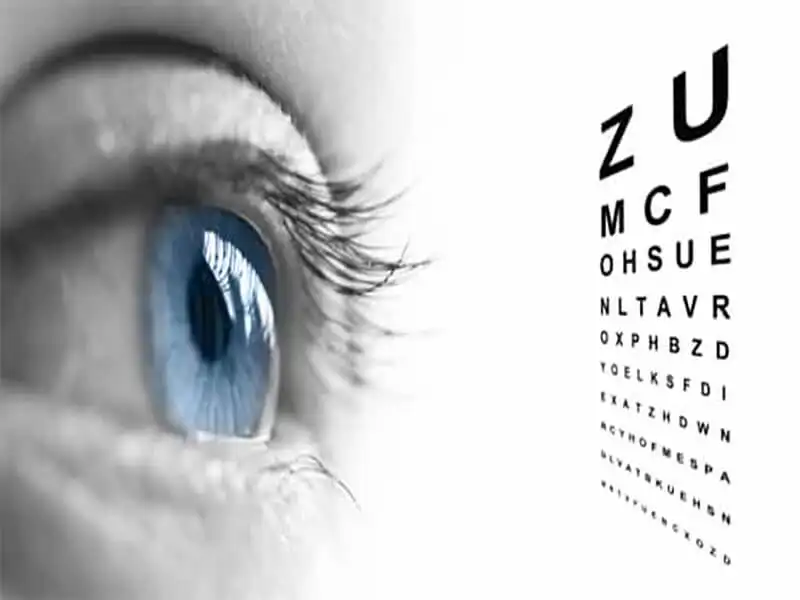All Categories
Featured

While most individuals recognize the importance of shielding their skin from the sun, the unsafe effects of ultraviolet (UV) rays on eye wellness often go ignored. Whether you're saturating up the sun on a summer season day or strolling outdoors on a cloudy mid-day, guarding your eyes from UV rays is necessary.
What Are UV Rays? UV rays are a sort of electro-magnetic radiation discharged by the sun. They are classified into 3 types:
UVA Rays: These penetrate deep right into the skin and eyes and can contribute to lasting damages. UVB Rays: These rays are more extreme than UVA and are mainly in charge of surface-level damages to the eyes and skin. UVC Rays: These are the most damaging yet are mainly absorbed by the Planet's ozone layer and do not commonly reach us. UVA and UVB rays are the key offenders behind eye-related damages.
Short-Term Results of UV Direct Exposure on the Eyes. Even short-term exposure to intense UV rays can harm your eyes. One usual problem triggered by this is photokeratitis, or "sunburn of the eye." Signs and symptoms of photokeratitis include:
Uncomfortable, red eyes. Level of sensitivity to light. Tearing or too much watering. Temporary vision loss or fuzzy vision. Photokeratitis is usually momentary, but it acts as a caution of exactly how destructive UV exposure can be, also in small doses.
Long-Term Results of UV Direct Exposure. Extended exposure to UV radiation can bring about much more major and long-term eye conditions, such as:
Cataracts: UV rays can accelerate the development of cataracts, a condition that triggers clouding of the eye's all-natural lens, leading to blurry vision and, if untreated, loss of sight.

Macular Deterioration: UV exposure can harm the retina, particularly the macula, enhancing the danger of age-related macular degeneration (AMD), which affects central vision.
Pterygium: A development of cells on the white component of the eye that can prolong over the cornea, triggering pain, soreness, and vision problems.
Pinguecula: UV exposure can trigger yellow-colored deposits to base on the conjunctiva, resulting in inflammation and dryness.
Skin Cancer Cells Around the Eyes: The delicate skin bordering your eyes is extremely vulnerable to UV radiation, raising the threat of skin cancers cells like basic cell cancer and squamous cell cancer.
How to Protect Your Eyes from UV Rays. Protecting your eyes from UV rays is easy and requires a couple of mindful habits:
Buy Quality Sunglasses: Select sunglasses that obstruct 100% of UVA and UVB rays. Look for labels that define "UV 400" security. Wrap-around styles are ideal as they block UV rays from the sides as well.
Wear a Wide-Brimmed Hat: A hat with a brim at the very least 3 inches vast can significantly reduce UV direct exposure to your eyes and face.
Limit Exposure Throughout Top Hours: UV rays are strongest between 10 a.m. and 4 p.m. If you must be outdoors during these hours, make certain you're sufficiently shielded.
Do Not Be Deceived by Clouds: UV rays can permeate via clouds, so it is very important to use sunglasses even on overcast days.
Safeguard Your Eyes Year-Round: Snow, sand, and water can reflect UV rays, intensifying their effects. Eye security isn't just for warm summer days-- ensure you're covered in all periods.
Use UV-Blocking Call Lenses: Numerous contact lenses currently feature UV defense. If you use calls, ask your optometrist concerning lenses with integrated UV filters for added protection.
Urge Eye Protection for Children: Kid's eyes are extra sensitive to UV rays due to the fact that their lenses are more clear, enabling more radiation to get to the retina. Make certain they put on sunglasses and hats during exterior tasks.
Normal Eye Examinations. Regular exams with an eye treatment specialist are vital for early discovery of any type of UV-related damages. An optometrist or eye doctor can evaluate your eyes, advise protective actions, and detect problems like cataracts or macular degeneration beforehand.
Conclusion. UV rays position a considerable risk to eye health, and their effects can accumulate gradually. With the right precautions, you can lessen these dangers and shield your vision. By wearing UV-blocking sunglasses, limiting sun direct exposure during top hours, and remaining consistent with eye tests, you can guarantee your eyes stay healthy and your vision remains clear for many years to come. Securing your eyes from UV radiation isn't almost convenience-- it's a vital action in maintaining your long-term eye wellness.
Latest Posts
Explore Brake Repair & More: Full Repair Options from Montclare Auto Repair
Signs When Your Car Needs Expert Vehicle Service at Montclare Auto Repair
Discover the Top Auto Repair Offers in Montclare, Chicago